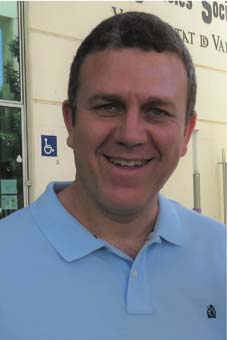
An international study in which several institutions have taken part lead by Gregorio González, researcher of the Universitat de València, confirms the ‘scientific dependency’ of the developing countries regarding the United States and Europe in their key spheres such as Tropical Medicine, Infectious Diseases, Parasitology and Paediatrics. The research, published in PLOS ONE, proposes the scientific collaboration and the alliance with more developed countries as a mechanism to increase the scientific production.
The work has used the order of the signatures and the contact address of the publications to analyse the North-South interaction. ‘We have objectified through an indicator denominated dominance index (index of domain) a situation of scientific dependence of the less developed countries in relation to the ones with a greater scientific progress in key areas of Health Sciences. Despite the fact that, in order to reduce the high prevalence of tropical, infectious and parasitic diseases and the high infant mortality rates in the least developed countries it is essential the boost of the research developed and lead by these countries’, states Gregorio González.
Thus, although a high degree of international collaboration has been observed in all the areas analysed, in the case of the low-income (countries with a low HDI or Human Development Index) and medium-income countries their degree of contribution to the scientific production is limited.
The article ‘Dominance and leadership in research activities’ has verified that there is a limited participation of the less developed countries (M and L HDI) in nuclear journals of Tropical Medicine, Infectious Diseases, Parasitology and Paediatrics, even though these four disciplines are very relevant in the health systems of these countries, since they unite almost half of the global population. According to Gregorio González, full professor of the Department of History of Science and Documentation of the Universitat de València, it is verified that in those countries the research ‘is in many instances symbolic and connected to the interests of the more developed countries. It is like a scientific neo-colonialism’.
In the study - which also involved researchers from the General University Hospital of Alicante and the Miguel Hernández University of Elche (José M. Ramos); from the National Hospital Guillermo Almenara of Peru (Charles Huamaní); and from the Korea Institute of Science and Technology Information of South Korea (Jinseo Park) - it is also proposed a scientific collaboration as a mechanism to integrate the least developed countries into research activities.
In this sense, the research team has identified several cooperative links between countries with a very high Human Development Index and those of medium and low index, so the researchers conclude that the cooperative links ‘are an outstanding mechanism for the integration in the activities of research of these last countries’, according to Gregorio González. Besides, in many collaborations it is emphasised the effect of the geographical proximity and the socio-political factors like sharing the same language or being former colonies of other countries as aspects which favour the collaborations. The analysis also confirms that the countries with a higher economic development are in the middle of the collaboration networks since they have stablished a largest number of cooperative bonds with other countries. Furthermore, the big developing countries like Brazil, China, India and South Africa present a lower collaboration rates than the ones that are around them.
‘Science must assume mechanisms that favour a balanced participation in research activities and we believe that this kind of proposals can be used to warn and try to correct the imbalance that has been noted’, states Gregorio González.
Methodology:
For the article ‘Dominance and leadership in research activities’ all the documents published between 2011 and 2015 in journals included in the Tropical Medicine, Infectious Diseases, Parasitology and Paediatrics categories of the Science Citation Index-Expanded were identified, as well as the countries that took part in the publications which could be found in the institutional membership and contact address sections.
Then the countries were classified depending on geographical and Human Development Index (HDI) criteria. The international collaboration, positioning, influence or control of some countries over others in the cooperative networks, leadership and impact of the works based on the HDI levels of the countries and the kind of relationship that have achieved were analysed.
Career:
Gregorio González Alcaide is member of the group EDIFICA (Evaluation and Dissemination of Science, Promotion of the Research Methodologies and Academic Communication) and tenure-track 2 lecturer of the Department of History of Science and Documentation of the Universitat de València. He has published over a hundred articles in international journals such as PLOS ONE, Scientometrics or Lancet, based on quantitative analysis of scientific research, questionnaires and analysis of social networks in order to study the collaboration and other facets associated with research activities like the identification of the intellectual structures that underlie knowledge in different scientific disciplines, the evaluation of researchers, ethics in the publication process or the participation of women in science.
Article:
Gregorio González-Alcaide et al. «Dominance and leadership in research activities: collaboration between countries of differing human development is reflected through authorship order and designation as corresponding authors in scientific publications». PLOS ONE http://journals.plos.org/plosone/article?id=10.1371/journal.pone.0182513
Last update: 11 de august de 2017 15:33.
News release



















